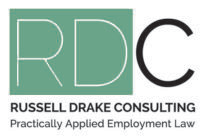Workplace Investigations NZ
Increasingly employers are being required to consider whether a concern or complaint needs to be investigated prior to a formal disciplinary process being implemented. Generally, this will require a gathering and assessment of the facts prior to a decision on potential disciplinary action being made.
To seek to move to a disciplinary process without undertaking some form of preliminary workplace investigation may be seen by The Employment Relations Authority as being too hasty, if the outcome of the disciplinary is challenged by the employee at a later date.
Although a ruling of the Securities Commission in 2021 confirmed that only practicing lawyers or licensed private investigators where authorized to undertake independent workplace investigations, this did not preclude the employer from undertaking their own internal workplace investigation.
However, it is worth considering a recent ruling by the Fair Work Commission in Australia which often influences New Zealand case law and may affect the way New Zealand employers look at this in the future. Crook v CITIC Pacific Mining Management Pty Ltd [2022]
In the Australian case, a female employee had raised a complaint of sexual harassment (lewd comments being made to them by a male employee) with their employer. The employer elected to investigate this complaint themselves with this resulting in a disciplinary process whereby the offending employee’s employment was terminated on the basis of serious misconduct. The dismissed employee then took his grievance claim (unjustified dismissal) to the Fair Work Commission.
The Fair Work Commission reviewed the employer’s workplace investigation process and concluded that this was flawed, and on this basis concluded that the employee had been unjustifiably dismissed and ordered their reinstatement.
The fundamental flaws in the workplace investigation process were identified to include the following points:
- The recommendation to dismiss was based on a single interview with both the complainant and the accused parties.
- The failure to adequately identify and interview other potential witnesses.
- The failure to gather and review other sources of information.
- The superficial nature of interview questions.
- The failure to allow the accused party sufficient opportunity to submit further information.
- The manager’s decision to dismiss was made on the recommendation of another party.
The employer lost this case based on the failure to implement a robust workplace investigation process which then resulted in the disciplinary process being defective because it was based on insufficient and incorrect information.
In conclusion, while an employer is entitled to undertake their own internal workplace investigation there are significant risks and liabilities if this is not completed in accordance with the same standards that would apply, under scrutiny, to an externally facilitated investigation.
As Workplace Investigation Specialists we are able to conduct all workplace investigations and provide advice, guidance and assistance with your investigation so it is watertight, and the rights of the parties are not left up to interpretation. Please feel free to contact us directly if you require further assistance.

